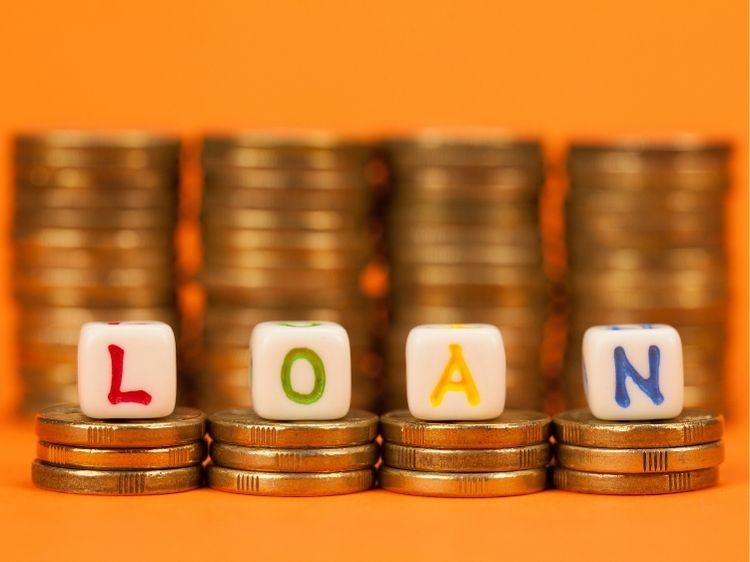Are you considering buying a home but worried about the down payment and credit score requirements? An FHA loan might be the answer to your homeownership dreams! Whether you’re a first-time homebuyer or simply looking for a more accessible loan option, this guide will walk you through everything you need to know about FHA loans, from eligibility to benefits, and the process of securing one.
What is an FHA Loan?
An FHA loan is a mortgage insured by the Federal Housing Administration (FHA), a government agency within the U.S. Department of Housing and Urban Development (HUD). FHA loans are designed to help low-to-moderate-income individuals and families become homeowners, particularly those who may not qualify for traditional loans due to limited credit history or smaller down payments.
Why Choose an FHA Loan?
There are several compelling reasons why an FHA loan could be the perfect fit for you. Here are some key benefits:
- Low Down Payment Requirements: With an FHA loan, the down payment can be as low as 3.5% of the purchase price, which is significantly lower than conventional loans.
- Flexible Credit Score Criteria: Borrowers with credit scores as low as 580 can qualify for the 3.5% down payment option, and even those with scores between 500 and 579 may qualify with a higher down payment.
- Favorable Interest Rates: FHA loans often have competitive interest rates, making monthly mortgage payments more affordable.
- Easier Qualification Process: FHA loans are more forgiving of past financial hardships, such as bankruptcy or foreclosure, as long as certain conditions are met.
FHA Loan Eligibility Criteria
So, who qualifies for an FHA loan? While FHA loans are more accessible than traditional mortgages, you’ll still need to meet certain criteria to be approved. Here’s what you’ll need:
- Credit Score: A minimum credit score of 580 is required for the low down payment option (3.5%). If your credit score is between 500 and 579, you’ll need a 10% down payment.
- Debt-to-Income Ratio: Lenders typically require that your debt-to-income (DTI) ratio, which measures your monthly debt payments in relation to your income, doesn’t exceed 43%. However, in some cases, lenders may accept a DTI ratio as high as 50%.
- Steady Employment History: A consistent employment history (usually at least two years) is often necessary, though exceptions can be made in specific cases.
- Primary Residence: The home you’re purchasing must be your primary residence. FHA loans are not available for investment properties or second homes.
- FHA-Approved Property: The property must meet FHA standards, including safety, security, and soundness criteria.
How to Apply for an FHA Loan
Applying for an FHA loan is relatively straightforward, but there are a few steps you’ll need to follow to get through the process successfully.
- Find an FHA-Approved Lender: Not all lenders offer FHA loans, so the first step is finding one that does. FHA-approved lenders can guide you through the application process and ensure your paperwork is in order.
- Get Pre-Approved: Before you start shopping for a home, it’s a good idea to get pre-approved for an FHA loan. This will give you a clear idea of how much you can borrow and what your monthly payments will be.
- Submit Your Application: Once you’ve found a home you love, you’ll need to submit your formal application, including all necessary documentation such as pay stubs, tax returns, and bank statements.
- Appraisal and Inspection: The property you’re buying will need to be appraised and inspected to ensure it meets FHA standards. The appraisal ensures that the home is worth the price you’re paying, while the inspection checks for safety and structural issues.
- Close the Loan: Once everything is in order, you’ll be ready to close the loan. This is when you’ll sign all the paperwork, pay your down payment and closing costs, and officially become a homeowner!
FHA Loan Limits
One important aspect to consider is the loan limits set by the FHA. These limits vary by location and are based on the median home prices in each area. In high-cost areas, the loan limit may be higher, while in more affordable regions, it may be lower. For 2024, FHA loan limits range from $472,030 in lower-cost areas to $1,089,300 in high-cost areas for a single-family home.
FHA Loan vs. Conventional Loan: What’s the Difference?
You might be wondering how an FHA loan stacks up against a conventional loan. Here’s a quick comparison:
- Down Payment: FHA loans require as little as 3.5%, while conventional loans typically require 5-20%.
- Credit Requirements: FHA loans accept lower credit scores (starting at 500), while conventional loans usually require a minimum credit score of 620.
- Mortgage Insurance: FHA loans require mortgage insurance premiums (MIP) for the life of the loan, while conventional loans with less than a 20% down payment require private mortgage insurance (PMI), which can be canceled once you’ve built enough equity.
- Loan Limits: FHA loan limits vary by region but are generally lower than those for conventional loans.
Tips for Getting Approved for an FHA Loan
Want to improve your chances of getting approved for an FHA loan? Here are some tips:
- Boost Your Credit Score: While FHA loans are lenient with credit scores, improving yours can help you secure better terms and lower interest rates.
- Save for a Larger Down Payment: If your credit score is below 580, aim to save at least 10% for the down payment. A larger down payment can also help you reduce the amount of mortgage insurance you’ll pay over the life of the loan.
- Pay Down Debt: Reducing your existing debt can help lower your debt-to-income ratio, making it easier to qualify for a loan.
Frequently Asked Questions (FAQs)
Q: Can I get an FHA loan with bad credit?
A: Yes! FHA loans are specifically designed for borrowers with lower credit scores. If your score is between 500 and 579, you can still qualify with a 10% down payment.
Q: How much can I borrow with an FHA loan?
A: The amount you can borrow depends on the FHA loan limits in your area and your financial qualifications. In 2024, the FHA loan limit for single-family homes ranges from $472,030 to $1,089,300.
Q: Are FHA loans only for first-time homebuyers?
A: No, FHA loans are available to anyone who qualifies, not just first-time buyers. However, they are especially popular among first-timers because of the lower down payment and credit requirements.
Q: What is mortgage insurance, and why do I need it for an FHA loan?
A: Mortgage insurance protects the lender in case you default on the loan. FHA loans require mortgage insurance premiums (MIP) throughout the life of the loan unless you refinance into a conventional loan later on.
Q: Can I use an FHA loan to buy a fixer-upper?
A: Yes, FHA offers a specific loan program called the FHA 203(k) loan that allows you to finance both the purchase and renovation of a home.
Conclusion
An FHA loan can be a fantastic option for anyone looking to purchase a home without the strict requirements of a conventional mortgage. With its low down payment, flexible credit requirements, and easier qualification process, it opens doors to homeownership for millions of Americans. However, like any financial decision, it’s essential to weigh the pros and cons and ensure that it’s the right fit for your situation. Take the time to understand the requirements, plan for mortgage insurance, and prepare for the approval process. Happy house hunting!



